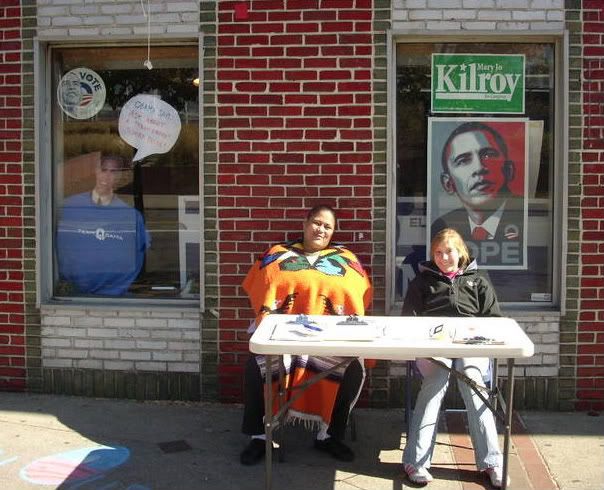The last daily tracking polls update I posted was on 8 October. That’s a lot of daily tracking poll results ago. Yet the bottom line is that nothing much has changed since.
On 8 October, the three-day running average of the daily tracking polls had Obama in the lead by 7%. Today, it has him in the lead by 7.1%. And in the meantime the clock is ticking on, and the window of opportunity for McCain to still close the gap is rapidly closing (or has it already closed?).
One major thing has changed though: there are ever more of the damn things. Daily tracking polls I mean. It seems like no self-respecting pollster can do without one this year (and to think that Gallup didn’t even have one in 2004!).
In early October you already had the long-running Gallup and Rasmussen ones, the Research 2000 one (sponsored by the Daily Kos) and the poll sponsored by Hotline and the alcoholic drinks business Diageo, conducted by FD. Zogby and Reuters started their own on 7 October; Investors Business Daily and the pollster TIPP followed on 13 October, and as of last Monday, ABC and the Washington Post present one as well.

Chart 1: All daily tracking polls
If you’re keeping a graph and you were basing any kind of trendline on the average of all daily tracking polls, this – well – sucks. Because every new poll comes with its own house effect, deviating from the others in its own ways. Zogby, for example, started off showing a 2-point lead for Obama when Rasmussen, Gallup and R2000 had it at 8-11 points. Then, just as the Zogby poll had settled nearer to the average, the IBD/TIPP poll came on the market showing Obama in the lead by just 2 points, when the other pollsters had it at 4, 5, 6, 10 and 12 points, respectively. And just when Rasmussen, Zogby, IBD/TIPP and Hotline agreed on a 4-5 point Obama lead last Monday, the ABC/WaPo jumped in with its own tracking poll showing a 9-point lead.
Finally, there was Gallup, on 12 October, providing no longer just data for registered voters, but separate numbers for not just one, but two distinct “likely voter” samples as well, one encompassing a larger universe of voters than the other.
Seriously, you would be put off posting new graphs too.
Which of the three sets of Gallup numbers do you feature? How do you deal with how the ups and downs in your average reflect some new poll having been added into the mix as much as any genuine shift in the numbers? And how meaningful do any of the numbers still seem anyway, when on almost any given day the five-to-nine sets of numbers you’re looking at have Obama’s lead anywhere between 3 and 11 points? (And that’s just the daily tracking polls!)
Chart 1 above, if you click it to enlarge, shows how messy and, by implication, uncertain it all is. The pollsters are all over the map in pinpointing Obama’s lead. But saying that is also identifying the obvious commonality. Every one of the daily tracking polls has Obama in the lead, and that’s been true since 17 September, over a month ago.
How big is that lead though?
Continue Reading »

 One of the talking points my friends on the right (real friends, not the McCain usage) bring up is concern over who Obama will appoint to the Supreme Court. Obama made the following
One of the talking points my friends on the right (real friends, not the McCain usage) bring up is concern over who Obama will appoint to the Supreme Court. Obama made the following 








